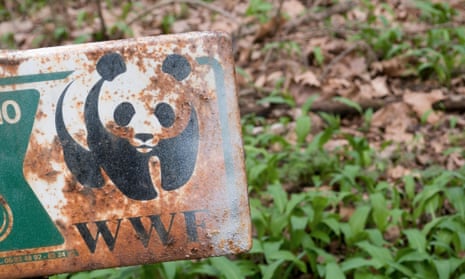A long-awaited report on allegations that conservation rangers supported by the World Wide Fund for Nature (WWF) committed violent abuses in several countries, including murder, has cleared the organisation’s staff of complicity but criticised it for serious shortcomings in oversight.
But even as the report was released, campaigners for tribal rights – including Survival International, which has long been a critic of WWF – suggested the report had failed to investigate some of the most serious issues and that it had been released two days before the US Thanksgiving holiday in an attempt to bury the news.
The review panel was chaired by Judge Navi Pillay, a former UN high commissioner for human rights, and also included Prof John Knox, the first UN special rapporteur on human rights and the environment, and Dr Kathy MacKinnon, chair of the IUCN World Commission on Protected Areas (WCPA) and former lead biodiversity specialist for the World Bank.
The panel was set up in 2019 following reports in BuzzFeed, which supported investigations previously made by the Rainforest Foundation (UK) and Survival International, that alleged tribespeople were beaten, tortured, imprisoned and killed under the guise of anti-poaching operations.
The report concluded that in several instances WWF employees, including senior staff in several countries including Nepal, Cameroon and the Democratic Republic of the Congo, were aware of violations by rangers but failed to intervene either effectively or in a timely fashion.
Announcing new measures designed to help prevent future abuses, WWF said in a statement: “The reported abuses committed by some government rangers horrify us, and go against all the values we stand for. We feel deep and unreserved sorrow for those who have suffered. We are determined to do more to make communities’ voices heard, to have their rights respected, and to consistently advocate for governments to uphold their human rights obligations.
“Our conviction is that the steps we are taking will help safeguard communities and the nature upon which they depend, and that we and our partners will deliver more lasting conservation as a result.”
The 19-month independent review concluded that rangers involved in abuses were employed and managed by individual governments, not WWF. It also found no evidence that staff had “directed, participated or encouraged” any of the alleged abuses, nor that WWF had “purchased or procured weapons for rangers”.
The report, Embedding Human Rights in Conservation, looked at allegations of serious human rights violations in central Africa, India and Nepal, some of which were first reported on the BuzzFeed news site in 2019.
Among the allegations dismissed by the report was that WWF had provided weapons for rangers in Central African Republic (CAR), although it found staff had lobbied for unspecified equipment. “It was alleged that WWF CAR helped ecoguards [rangers] purchase weapons from the army and concealed the purchase from donors,” the report said.
“The panel found no evidence that WWF CAR provided or procured arms for the ecoguards. It was clear that WWF’s policies prohibited the organisation from providing arms to ecoguards but it may have engaged in lobbying the ministry of water, forests, hunting and fishing to ensure that ecoguards were properly equipped for anti-poaching activities.
The report criticised the organisation’s inconsistent approach to human rights issues. “The panel found that WWF’s implementation of its social policies and human rights commitments has been inconsistent in the countries of concern to this report, and especially weak in the Congo basin countries.
“From the country reviews it is apparent that some WWF programme offices have been more successful than others in implementing WWF’s social policies, responding to alleged abuses committed by state partners, and establishing practices and mechanisms to address and prevent further abuses.”
The report added: “Neither WWF International and WWF US as home offices nor the WWF network as a whole provided clear guidance to programme offices on how they should implement WWF’s human rights commitments. For example, there were no network-wide norms on law enforcement and rangers.”
Referring to abuses in the DRC’s Salonga national park, the report was particularly scathing, saying that WWF “was aware of the potential for human rights abuses by ecoguards, but it did not carefully assess the human rights risks or develop an effective plan to prevent and respond to abuses.
“In December 2016, WWF field staff reported allegations of human rights abuses to senior WWF DRC officials. WWF could and should have developed and implemented an appropriate response as quickly as possible after the allegations arose.
“Unfortunately, a decision by the WWF DRC senior management team in March 2017 to investigate the allegations, and to initiate a study with a national NGO to investigate the relationship of the park with the local communities, was never implemented, apparently out of concern that doing so would meet with resistance from [the Congolese national conservation body] the ICCN.
“A desire to avoid conflicts with the government cannot excuse WWF from complying with its responsibility to respect human rights.”
The report also found “no formal mechanism in place for WWF to be informed of alleged abuses during anti-poaching missions” in Nepal, despite torture, rape and murder allegations ranging from the early 2000s until earlier this year.
In a statement Survival International suggested the report sought to shift blame away from WWF. It said the report’s focus was “that WWF knew about the alleged abuses by rangers … but … continued to support and collaborate with them, and … failed to take effective steps to prevent, respond to and remedy the alleged abuses.
“The report echoes previous WWF responses in passing blame on to ‘government rangers’, funded and trained by WWF.”
